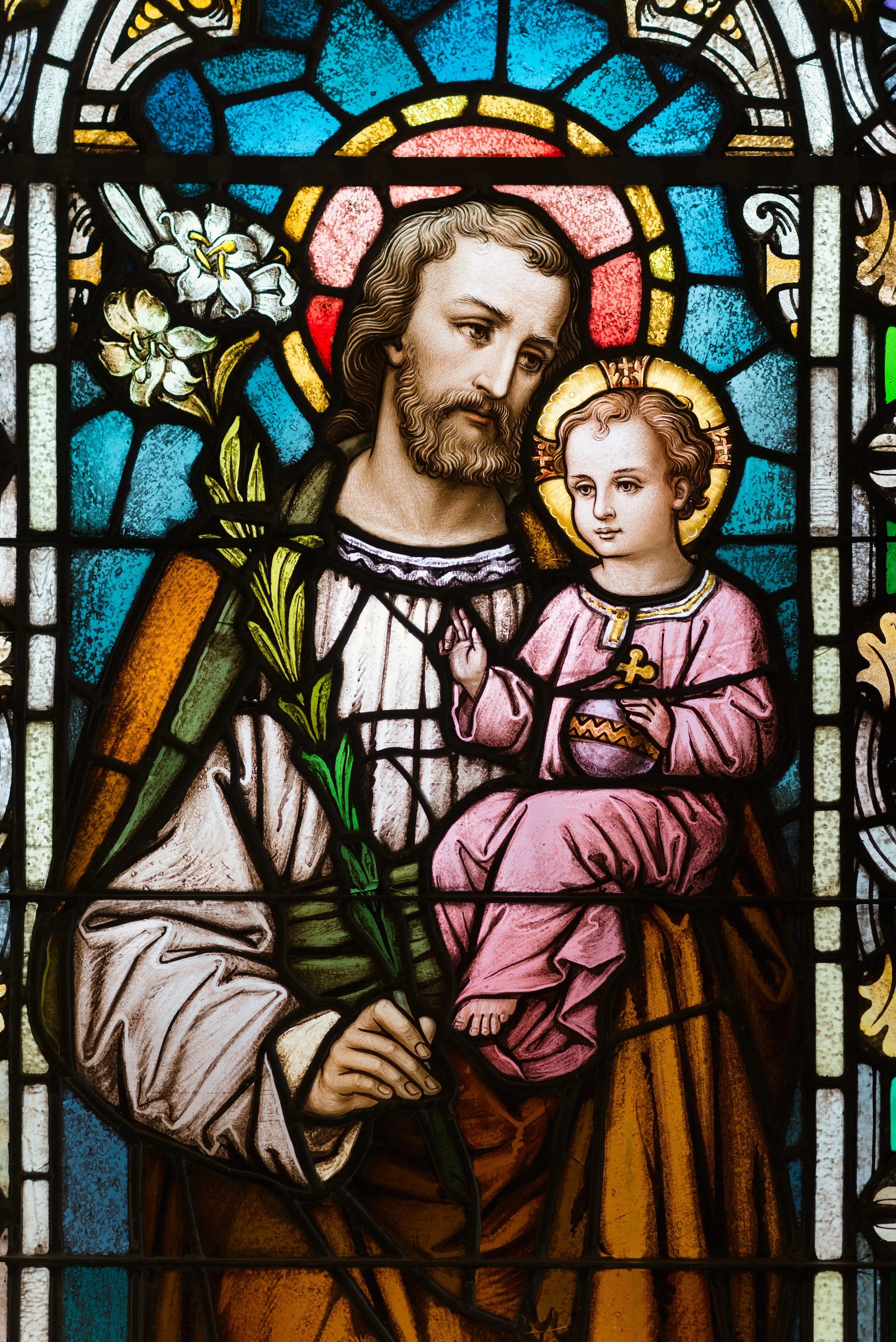During the time of Jesus’s birth, all subjects and citizens of the Empire had to submit to census by decree of Caesar Augustus, who was the nephew of Julius Caesar and was considered the first emperor of the Roman Empire. He was referred to as Princeps Civitatis (First Citizen).
The census showed off Augustus’s greatness: the number of people in his Empire and under his rule quantified his power. Big numbers represent money and power, both of which allowed him to enact his own will on others. A passage from Luke 2 indicates that all were subject to Caesar:
καὶ ἐπορεύοντο πάντες ἀπογράφεσθαι ἕκαστος εἰς τὴν ἑαυτοῦ πόλιν (And all were passing from one point to another to be recorded in writing each into their city)
No citizen of the Empire was exempt from the authority of Caesar; all had to make the journey.
St. Joseph was a τέχνη (artisan, builder, craftsman). He was a maker or doer. Luke 2 confirms that Joseph was also subject to this decree of Caesar and that Joseph, obedient to Caesar, proceeded to Bethlehem:
Ἀνέβη δὲ καὶ Ἰωσὴφ ἀπὸ τῆς Γαλιλαίας ἐκ πόλεως Ναζαρὲθ εἰς τὴν Ἰουδαίαν εἰς πόλιν Δαυὶδ ἥτις καλεῖται Βηθλεέμ διὰ τὸ εἶναι αὐτὸν ἐξ οἴκου καὶ πατριᾶς Δαυίδ (And also Joseph went up from Galilee out of the town of Nazareth to Judea into the city of David, which is called Bethlehem on account of his being out of the nation and lineage of David)
St. Joseph was both of the nation of David and of direct lineage of David. St. Luke contrasts Caesar’s authority here with David’s authority; David was King of all Israel, yet clearly those of David’s nation and lineage were subject to the authority of Rome. In the political order, St. Joseph, of the nation and lineage of King David, was subject to Caesar.
The Will of Caesar vs the Will of God
In the supernatural order, Jesus had a divine origin, which St. Luke revealed when describing the Annunciation. St. Joseph, technically by rights heir to the throne of Israel as a descendent of David, brought two very important people with him: τῇ ἐμνηστευμένῃ αὐτῷ (the one betrothed to him) and οὔσῃ ἐγκύῳ (she being with child). St. Joseph brought both Mary, his betrothed, and Jesus, the Son of God, King of Kings, to Bethlehem, the city of King David. The infinite King of all was subject to a finite emperor Caesar Augustus of the Roman political order. God worked through this subjection to bring Jesus to his home city: Jesus arrived at Bethlehem, where he was both of the nation of David and of direct lineage of David.
The entire Empire turned at the will of Caesar Augustus, a ruler in the political order, yet no one turned to help St. Joseph, Mary, and Jesus, the ruler in the supernatural order. Jesus was born in a gross place and was wrapped in swaddling clothes and placed in a cattle-feeder. St. Joseph, of the nation and lineage of David, carried his wife and son, our Lord Jesus Christ, to a cave.
Readers of the story of the birth of Jesus may object: why would God incarnate not ensure that he had a nice, comfortable place to stay? St. Luke provides only one reason: διότι ούκ ἦν αὐτοῖς τόπος ἐν τῷ καταλύματι (because there was no place for them to pause in their journey).
Following Caesar vs Following St. Joseph
St. Joseph knew from a vision that he and Mary carried the Son of God with him. Yet, he allowed others to believe that Mary’s child was his, and as he tried to find a place for his wife and soon-to-be born son, he carried the rejection of having nothing to provide for him and her besides a cattle-feeder in a stable cave.
He could have been a bit self-promoting and said, “I am of the nation and lineage of David; how dare you deny me a room?” or “I carry the Son of God; bow down and worship him.” He said nothing. St. Joseph, the doer, was silent.
Caesar Augustus, to quantify and exert his power, put the entire Empire into movement and noise. Caesar was not silent about his power; the very movement of all shows that his voice was the loudest. Caesar created discord by forcing all subjects and citizens to go to their nation and lineage’s origin to be recorded so Caesar could quantify his power. Caesar spoke, and they listened. When St. Joseph spoke, even with a pregnant wife about to give birth, nobody cared. It’s possible that someone took pity and let him into the stable cave; it’s also possible that they just went into the stable cave knowing no one else would want to be in a place like that.
Today, people experience the authority of Caesar Augustus in an analogous way. First, they experience it in their own lives with the cacophony of the will of others whom they are subject to; this subjecting may come in an employment situation, at home, or in another situation where they do not have a choice since their survival depends on keeping the person in authority happy.
Second, people are usually not silent like St. Joseph when people do not care or when people reject them. They are quick to condemn people for not caring or not paying attention when perhaps the proper response is silence like St. Joseph. This sort of silence requires humility. St. Joseph had no notion of proving his dignity to those who rejected him. Perhaps he felt emotions like resentment or annoyance; if so, how did he respond? He kept caring or loving others. More precisely, he did what St. Paul instructed in 1 Corinthians 13:
ἡ ἀγάπη μακροθυμεῖ χρηστεύεται ἡ ἀγάπη οὐ ζηλοῖ ἡ ἀγάπη οὐ περπερεύεται (Love patiences, being benevolent; not warm-feelings, not being self-promoting)
Silence, Power, and Humility
When St. John of the Cross wrote a letter to the nuns at the Carmel of Beas, he spoke about how writing and speaking are usually in excess, but work and silence are lacking. Even if a person maintains an exterior silence, the person does not necessarily maintain an interior silence, which is required for union with God. St. John of the Cross emphasizes to these same nuns in an earlier letter the year before to imitate Christ in total silence. Silence here means working at whatever God has called you to in your state in life with interior silence to hear the voice of God in your soul as well as through secondary causes like events, people, and things.
Real power comes not from the political order, but in humility, like Christ, in total silence. Not only did St. Joseph live in total silence in Scripture, St. Joseph lived everything St. Paul listed in 1 Corinthians 13.
May Christians everywhere strive to live like St. Joseph and follow his example!
How to learn more
To learn more about the Carmelite tradition in general, check out Midnight Carmelite episodes through the player below and hit subscribe to stay up to date!
Note: All Scripture translations in this post are my own.

